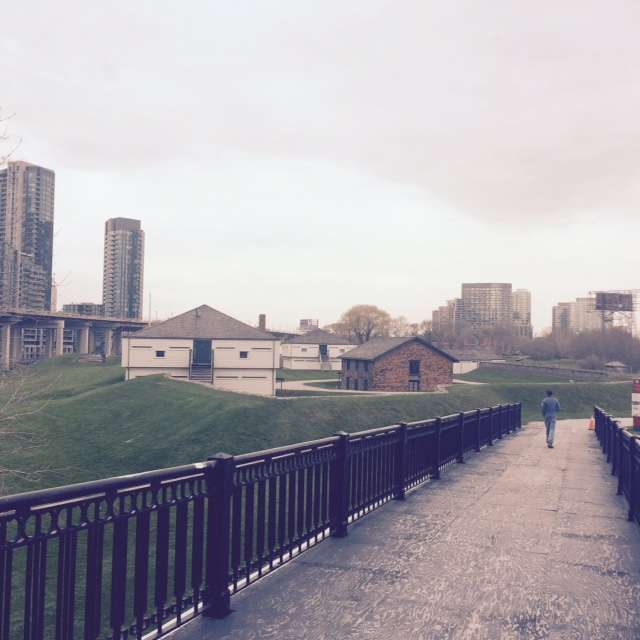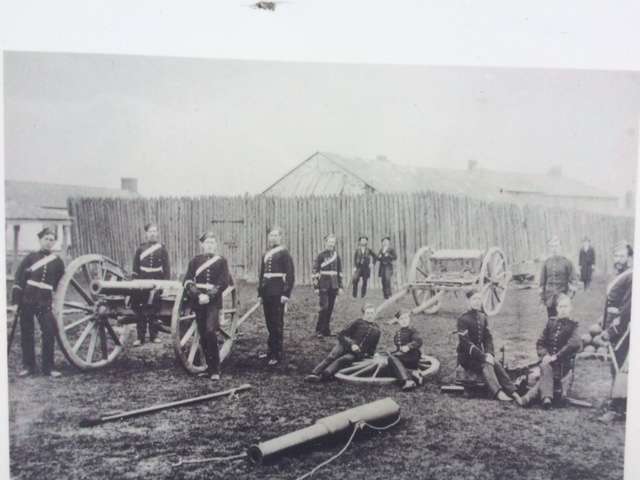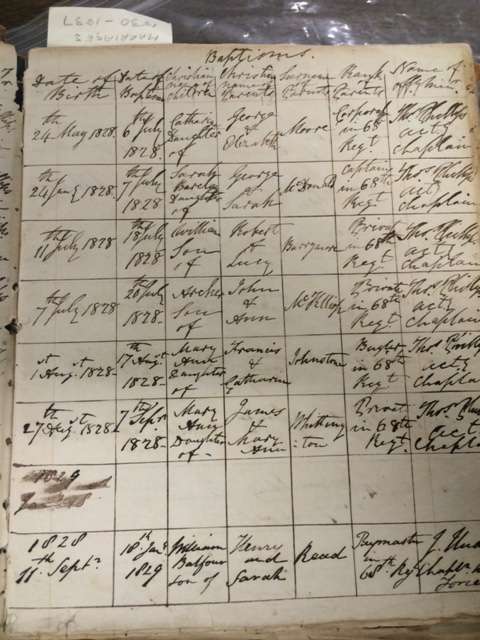For various reasons, this blog has taken a back seat to my fun hobby blogging, which I seem to have more energy for. However, each time a batch of new students comes through the Canadian Armed Forces Chaplain School, one of them invariably asks me if I am THE Mad Padre, which is about as close to celebrity status as I am likely to come.
In that spirit of mixed guilt and vainglory, here is the text of a sermon I preached last Sunday, 19 Feb, at St. Margaret's of Scotland Anglican Church in Barrie. St. Margaret's is one of the healthiest Anglican parishes I've seen in a long while, not without its challenges but it has a shot at a long and bright future, in large part due to an excellent priest, Fr. Simon Bell. Simon+ has been kind enough to let me preach and preside on occasion.
I'm struck by how much of my preaching these days seems to involve some sort of ecclesiology, as if I am trying to work out and defend the importance of church and of worship. These days, I think this may be one of the preacher's most important tasks. MP+
A Sermon for the Seventh Sunday of Epiphany
Lectionary;
Leviticus 19: 1-2,9-18;
Psalm 119: 33-40;
1 Corinthians 3:10-11, 16-23;
Matthew 5:38-48
Be perfect, therefore, as your heavenly Father is perfect. (Matt 5:48)
Perfect can sometimes be an awkward, even threatening, word. It’s ok in casual use, when we might use “perfect” in a limited way to describe good things that are out of the ordinary. A sports announced might say that pitcher might throw a perfect fastball to make the third out with the bases loaded. A winter vacation on a tropical beach might be the perfect holiday. The first time you see a newborn grandchild, you might say that the infant is perfect, even though you know that the infant may grow up to be loved despite the flaws.
However, when the word perfect is loaded onto our shoulders, then it can be an awkward, even heavy burden. When an employer tells us to do a perfect job on an important task, we might well feel anxious. Despite the expectations of out culture, we know that we probably won’t give our children the perfect child, or our loved one the perfect marriage. Most of us, unless one is a narcissist who somehow became President of the United States, have a very firm grasp of our imperfections.
It may have discomforted you, even alarmed you, to have heard this morning in our scripture readings that God wants us to be perfect. In our Gospel reading from Matthew’s account of the Sermon on the Mount, we hear Jesus tell us to “Be perfect, therefore, as your heavenly Father is perfect” (Matt 5:48). By the time you heard those words, you may well have been digesting our first reading from Leviticus, when God tells Moses to let the people of Israel know that “You shall be holy, for I the Lord your God am holy” (Lev 17). If you weren’t taken aback by that line, perhaps you were a bit rattled by Paul’s statement in our second lesson that For “God's temple is holy, and you are that temple” (1 Cor 3:16).
So some of us may be feeling inadequate, even alarmed by the expectations we hear from scripture this morning. If I can’t promise my boss or my supervisor that I will be perfect, that I will flawlessly fulfil their expectations of me, how on earth could I assure God that I will be perfect? Aren’t we sinners? Isn’t that why we say the prayer of confession together each Sunday? Don’t we depend on the grace of God and the sacrifice of Christ on the cross to take away our sins?
So how we can be perfect?
If that question bothers you, I would say two things. First, relax, because you’re not as bad as you think. I mean, you’re here, aren’t you? You’re the people of God, chosen by God for adoption into his family, called to love God and to love your neighbour as yourself. I’m not an expert on St. Margaret’s, but I think I can safely say, after six months of studying you, that you seem to grasp these things pretty well. In the time that we’ve been here, your care and love for one another has been pretty evident. You’ve shown that to us since Kay got sick. You take being church seriously. You chose a thoughtful and committed pastor to lead you, and you listen to him. You welcomed the people of St. Giles with compassion and respect to their past and to their traditions. You welcome newcomers each Sunday. Your not afraid to pray for others or to share what God is doing in your lives in ways that some Anglicans would be too reserved to do.
So you do church pretty well. You’re not perfect, so don’t get too relaxed and all complacent, but you’re not bad.
The second thing I would say to you, and this is far more important, is that it’s not up to you to be perfect. You can’t get there by yourself. That’s God’s job. That’s why he chose you and called you to be here. God has done a wonderful thing in creating and shaping all of us and getting us this far in life, but he’s not done yet. In our reading of Matthew’s gospel, the last line uses the word “perfect” (5:48), but the word in Greek, teleioi, can also mean complete. (I owe this insight to the Working Preacher podcast for this Sunday, found here).
Speaking personally, I find that while I have my doubts that I can be perfect, I want to be complete. I want to be, fully and wonderfully, the person that God created, in God’s likeness. I want to be rid of the things that hold me back, the things that sometimes make me feel empty inside, so I can be complete, the way God wants me to be. I suspect that I’m not the only one here who wants to be complete. And I think, really, that’s why we come to church, because it gives us a vision of the world as we want it to be.
Think of today’s gospel reading, not as a list of impossible demands, but as a vision of God’s kingdom, complete and fully realized on earth. It’s a kingdom where need is met with generosity, without conditions or resentment. It’s a kingdom where cycles of violence and hatred are broken by love and reconciliation. It’s a kingdom which does not depend for its existence on threatening enemies, but sees enemies as worthy of prayers rather than of hatred. It’s a kingdom where love and relationships aren’t confined to small in-groups and cliques, but where love and relationship are offered to strangers and outsiders. Is that kingdom realistic? Perhaps not by earthly standards. But wouldn’t you want to be a part of it?
Now think of church as a place where we do things that aren’t realistic by earthly standards. We shake the hands of strangers and wish them well. We practice being kind and gracious speech in the words of the liturgy (the lord be with you … and also with you). We meet people we might never otherwise associate with, eat with them, pray with them, together confess our need for and dependance on God. We honour all the generations, old and young. We welcome the poor, the rich, the fit and the frail, the banker and the street person. We give our hard-earned money to a cause that some would consider totally ridiculous. We form a community that has value solely because we see the face of Christ in one another. We are a community that is open to Christ’s work in us and amidst us, because we know that only in our dependance on Christ will we be complete.
These things that we do, Sunday by Sunday, show us what the kingdom of God looks like. They show us what being perfect in Christ, being complete in Christ, looks like. If we do these things with enough frequency, care, and attention, then they become automatic, a way of life that goes with us into the world for the rest of the week. This is how we, and the world around us, grow and become more perfect, more complete, as God intended us to be.
This morning I used the building blocks to show the children what Paul meant about building our foundation on Christ, the one sure thing. I can’t think of a better image going forward to our vestry meeting next week, or a better vision of what this parish is and needs to be, a community built on the sure foundation of Christ, who makes us perfect, and who makes us complete.






